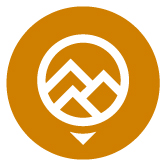
 
|

|
| Major: 5522
Catalog Year: 2023-2024
Effective Term: 2024 Spring
Last Admit Term: 2024 Summer
Award: CCL Total Credits: 18 CIP Code: 30.1701 |
Primary College: South Mountain Community College
Initiating College: Phoenix College
Program Availability: Not Found
Program Availability: Shared
Field of Interest: Behavioral Science and Human Services
Instructional Council: Counseling GPA: 2.00 |
|
SOC Code: Upon completion of this certificate, students may pursue a career as:
31-1133.00 Psychiatric Aides 21-1093.00 Social and Human Service Assistants 29-2053.00 Psychiatric Technicians Upon completion of a graduate degree, students may pursue a career as: 21-1011.00 Substance Abuse and Behavioral Disorder Counselors 21-1092.00 Probation Officers and Correctional Treatment Specialists 21-1093.00 Social and Human Service Assistants 29-2053.00 Psychiatric Technicians 21-1023.00 Mental Health and Substance Abuse Social Workers 21-1014.00 Mental Health Counselors 21-1012.00 Educational, Guidance, School, and Vocational Counselors 21-1013.00 Marriage and Family Therapists 21-1019.00 Counselors, All Others 21-1022.00 Healthcare Social Workers 19-3039.00 Psychologists, All Other 19-3031.03 Counseling Psychologists 19-3032.00 Industrial-Organizational Psychologists 19-3031.00 Clinical, Counseling, and School Psychologists 29-1223.00 Psychiatrists 19-3039.01 Neuropsychologists and Clinical Neuropsychologists 25-1066.00 Psychology Teachers, Postsecondary 19-3034.00 School Psychologists 29-1071.00 Physician Assistant | |
| Learning Outcomes | |||
|---|---|---|---|
| 1. Determine the role, function, and responsibilities of various mental health professions. (BHS150, BHS160, BHS170, BHS180)
2. Examine the comprehensive bio-psycho-social needs of diverse client populations in behavioral health and social service settings. (BHS150, BHS165, BHS170, BHS180) 3. Identify methods to resolve current symptoms and prevent future effects of burnout, traumatic stress, and compassion fatigue. (BHS155, BHS160, BHS165) 4. Manage individual cases as part of a multidisciplinary team in a fashion that best serves the patient and simultaneously protects the practitioner. (BHS155, BHS160, BHS165, BHS170, BHS180) 5. Document treatment plans in collaboration with a multidisciplinary team. (BHS160, BHS170, BHS180) 6. Practice evidence-based behavioral health interventions using assessment and outcome measures. (BHS150, BHS160, BHS165, BHS170, BHS180) 7. Demonstrate ethical interpersonal and communication skills important in establishing and maintaining relationships. (BHS150, BHS155, BHS160, BHS165, BHS170) | |||
| Program Notes | |||
|---|---|---|---|
| Students must earn a grade of C or better in all courses within the program. | |||
| Admission Criteria | |||
|---|---|---|---|
| None | |||
|
Program Prerequisites: None
|
|||||||||||
| Required Courses | |||||||||||
|---|---|---|---|---|---|---|---|---|---|---|---|
BHS150 Introduction to Behavioral Health and Social Services 3 | Credits: 18 | ||||||||||
| Restricted Electives | |||
|---|---|---|---|
| Credits: | |||
| General Electives | |||
|---|---|---|---|
| Credits: | |||
|
+ indicates course has prerequisites and/or corequisites.
++ indicates that any suffixed course may be selected. MCCCD Governing Board Approval Date: November 28, 2023 |